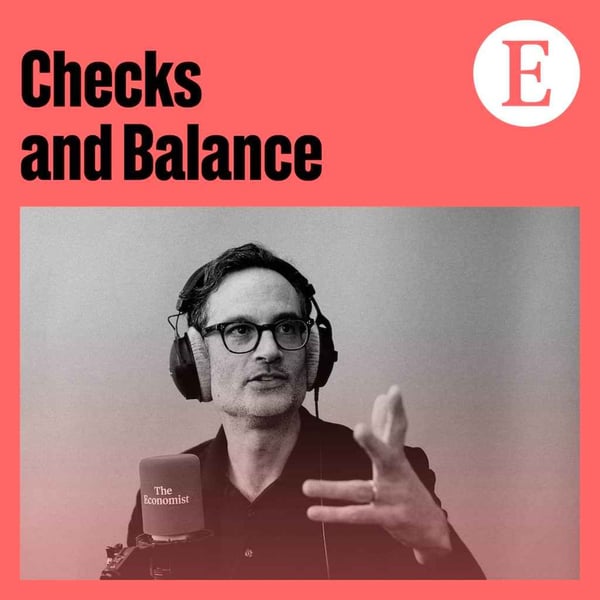Checks and Balance: Affirmative reaction
Checks and Balance from The Economist
The Economist
4.6 • 1.7K Ratings
🗓️ 11 February 2022
⏱️ 43 minutes
🧾️ Download transcript
Summary
Next term the Supreme Court will hear two cases challenging race-conscious admissions programmes. The court’s conservative supermajority is likely to rule for the plaintiffs. What difference would a ban on affirmative action make to higher education in America?
The Economist’s Tamara Gilkes Borr explains how she switched from opposing to supporting affirmative action. We tell the story of the man who coined the term. And The Economist’s Steve Mazie takes us through the Supreme Court cases, and considers if the process for replacing Justice Stephen Breyer is a form of affirmative action.
John Prideaux presents with Charlotte Howard and Idrees Kahloon.
For full access to print, digital and audio editions as well as exclusive live events, subscribe to The Economist at economist.com/uspod
Hosted on Acast. See acast.com/privacy for more information.
Transcript
Click on a timestamp to play from that location
| 0:00.0 | Barbara Grutter fancied a career change. 43 years old, in the owner of a successful health |
| 0:07.8 | care business, in the mid-90s she applied to the University of Michigan School of Law |
| 0:12.6 | with stellar grades. She was rejected. The law school waited applications to favour minority |
| 0:19.1 | students in order to ensure a diverse class, affirmative action and practice. Grutter felt |
| 0:26.4 | cheated. 30 years ago, as a young woman, I entered a sexist work environment. She later |
| 0:32.2 | wrote, only to find myself 25 years later, discriminated against on yet another basis. |
| 0:38.7 | This time, race. She sued the University, and in 2003 her case Grutter V. Bollinger made |
| 0:45.7 | it to the Supreme Court. In a five-four decision, the justice |
| 0:49.6 | is rejected her petition, finding that in a majority opinion written by Justice Sandra |
| 0:54.5 | Day O'Connor, the law school's race-conscious admissions programme does not unduly harm |
| 1:00.0 | non-minority applicants. Elsewhere in that opinion, Justice O'Connor said she expected |
| 1:05.4 | that 25 years from now, the use of racial preferences will no longer be necessary. Six years ahead |
| 1:12.6 | of her deadline, affirmative action in college admissions is on the verge of being banned. |
| 1:18.2 | Would this harm or help the fight for equality? |
| 1:21.9 | I'm John Prado. This is checks and balance from the economist. |
| 1:28.3 | Each week, we take one big theme, shaping American politics, and explore it in depth. |
| 1:35.3 | Today, does America still need affirmative action? |
| 1:55.3 | The Supreme Court has said it will hear two cases challenging race-conscious admissions |
| 1:59.2 | programmes. Last time it did, in 2016, the petition failed, but the current court's conservative |
| 2:05.0 | supermajority is likely to strike down affirmative action. What difference would a ban |
| 2:11.0 | on race-conscious admissions make to higher education in America? |
| 2:29.6 | With me to make sense of this thorny question, our Charlotte Howard, the economist's New |
... |
Please login to see the full transcript.
Disclaimer: The podcast and artwork embedded on this page are from The Economist, and are the property of its owner and not affiliated with or endorsed by Tapesearch.
Generated transcripts are the property of The Economist and are distributed freely under the Fair Use doctrine. Transcripts generated by Tapesearch are not guaranteed to be accurate.
Copyright © Tapesearch 2025.

